Good Science: Perhaps this could be one possible path in binary star evolution to form a black hole, this sort of scenario is used to explain Type Ia Supernova which could result in a neutron star forming from a white dwarf companion to a normal star.
Bad Science: If a system such as this existed, the initial neutron star companion would have had to have been created in a Type Ia supernova explosion which would have destroyed any preexisting planets or at least would have devastated their surfaces so completely that there would have been no way for a Star Gate team to survive on the planet's surface without space suits and major radiation protection.
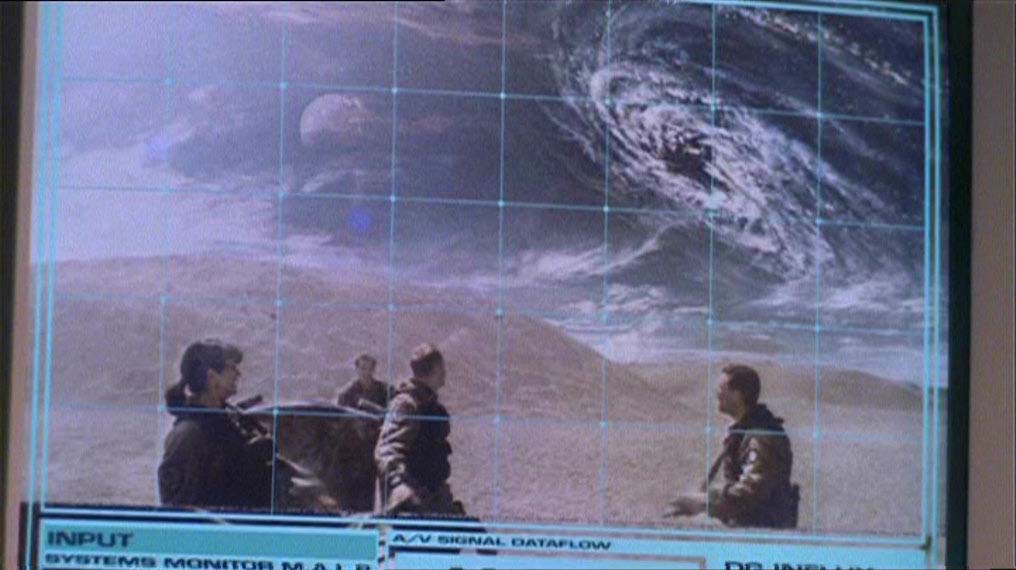
Good Science: The depiction of an accretion disk around the black hole is reasonable.
Bad Science: Black hole don't suck! (Even if Col. O'Neill says so!) The total mass of the binary system did not change and there would be no more or no less gravity effects at the planet than before the secondary star became a black hole. Although the fact that the binary components have exchanged mass would probably result in some sort of disturbance to the planet's orbit.
Good Science: There certainly are weird relativistic effects caused by the intense gravity field around a black hole. The major effect depicted was "time dilation", where the rate of time passage in the intense field slows way down compared to outside the intense gravity field.
Bad Science: Remember, black holes don't suck! These relativistic effects would only occur near the event horizon and they would not propagate outward from the black hole.
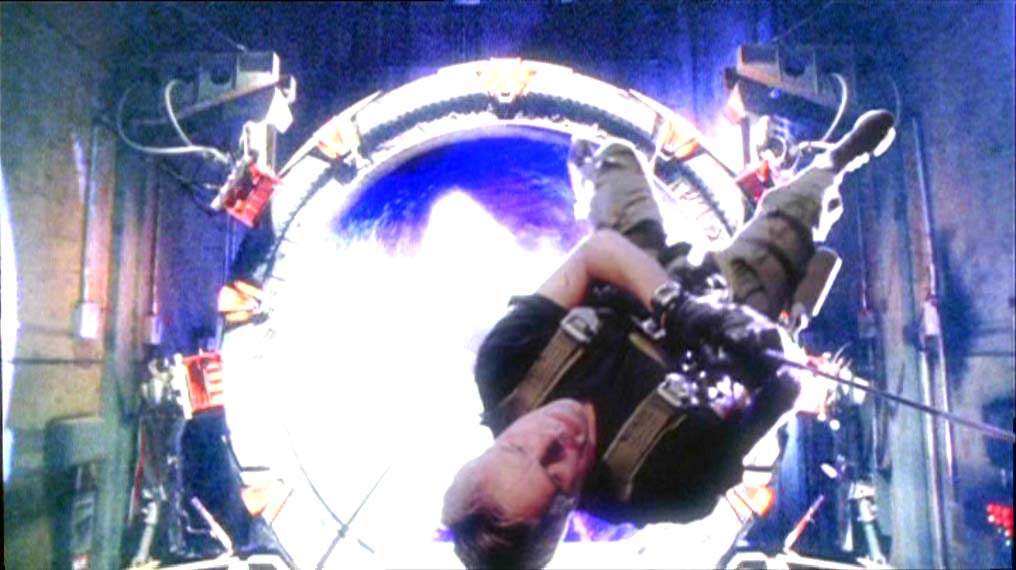
Good Science: A "wormhole" is a possible theoretical solution to Einstein's General Relativity equations. This sort of literary "device" is often used in science fiction to get around the fact that the speed of light is as fast as anything can travel within space-time. (This also comes from Relativity theory.)
Bad Science: The way the gravitational and relativistic effects are depicted around the star gate and inside the base are not very self-consistent, even considering the "science fiction" explanations and extrapolations.
Col. O'Neill hangs on for dear life as the bomb explodes to cut off the wormhole.
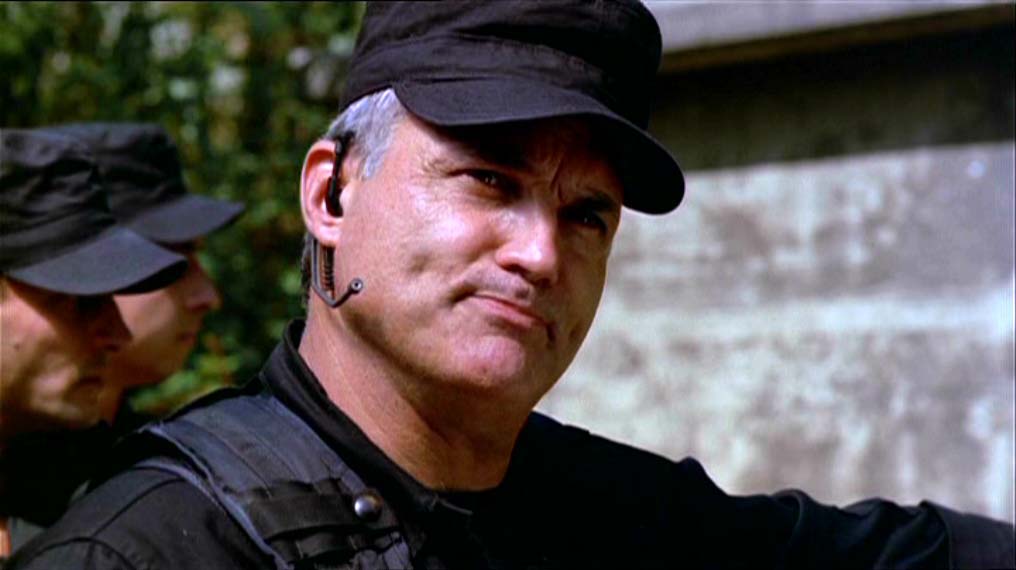
Col. Cromwell (Marshall Teague)
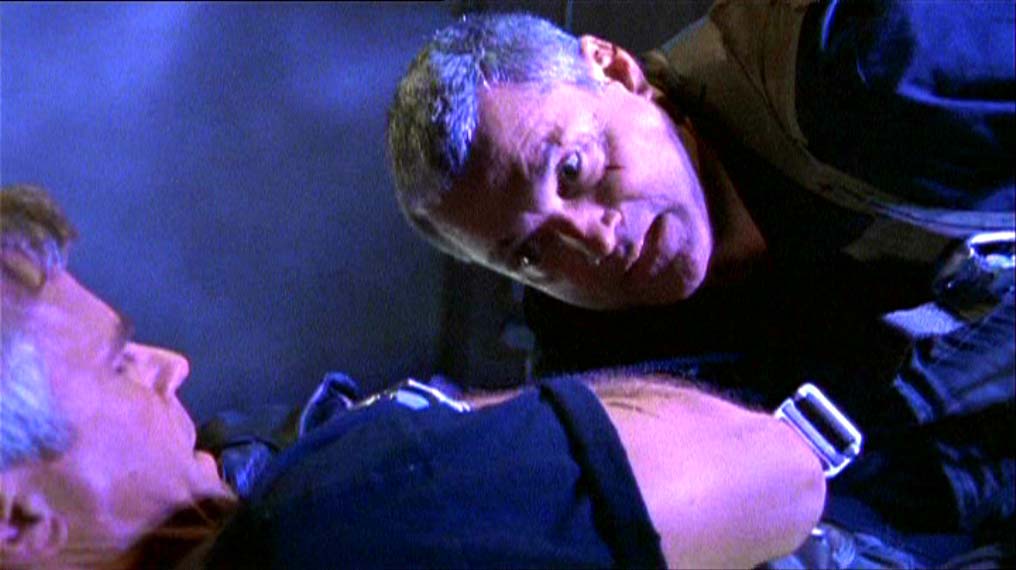
Hanging in the relativistic gravity field "above" the star gate.
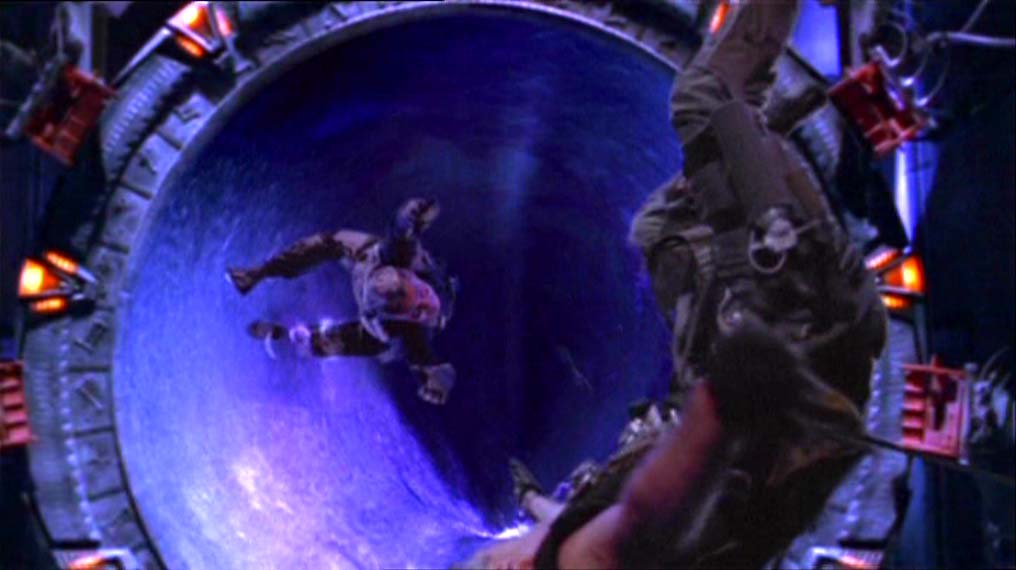
Col. Cromwell falls into the wormhole and on into the black hole,
the only known human to fall into a black hole! ....or did he?